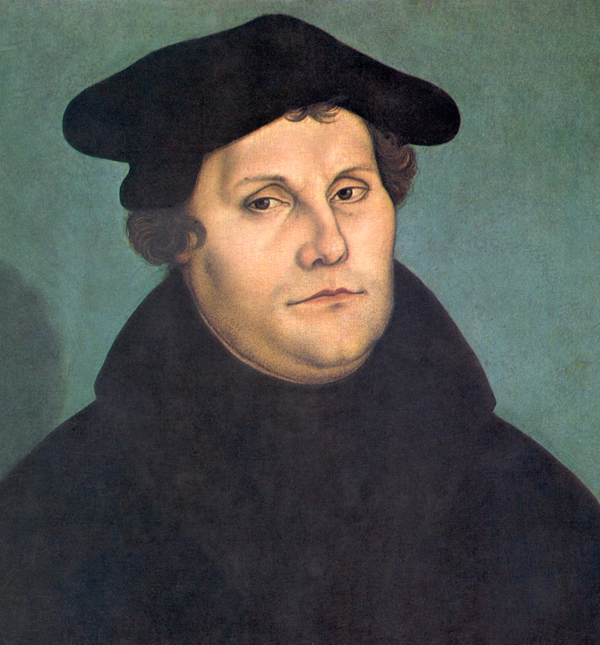Luther and the Bible

In 2017 we celebrated the 500th anniversary of the revolution initiated by Martin Luther. It is difficult for us today to imagine the grip that the Roman Catholic Church had on western culture from the conversion of Constantine in 312 to Luther in 1517, and how that control was welded in place by the belief that the church held the keys to eternal damnation and salvation. People were terrified, even, or perhaps, especially, the monk called Brother Martin, who lived in perpetual fear that he was not worthy of God’s love. This uncontrollable fear drove him into bouts of depression from which escape seemed impossible.
And then, one day, re-reading Paul’s epistle to the church in Rome no doubt for the 100th time, the words struck him: we are saved by grace through faith! God already loves and accepts us just as we are, and all we have to do is to realize that fact! The wave of joy and excitement that swept over Luther could not be contained. At the time, the pope was trying to raise money for his chapel, and to do so he was selling “indulgences”, a way to get out of purgatory free, for you or deceased loved ones who were crying out to you in pain. Luther would have none it, and challenged the doctors of Rome to a debate.
But wait: on what authority was he to challenge the power of the church on such matters? Answer, the Bible. Alone. Sola Scriptura. The church had always considered the Bible authoritative, but realized that it had to be interpreted, and so it valued church tradition as the great interpreter, especially tradition as embodied in the pope.
The fact of the matter is that although Luther turned to the Bible in order to attack church doctrine, he turned to it as he interpreted it. He never believed it to be inerrant. In fact, there are four books in the Bible that he thought should never have been admitted as scripture, and he left them out of his Bible: James, which he considered “an epistle of straw”, the book of Revelation “I consider it neither apostolic nor prophetic”, and Hebrews and Jude. Clearly, Luther did not believe the Bible to be infallible.
It took about 50 years for that belief to arise in what we now call Protestant Orthodoxy, which took Christianity to mean belief in right doctrine as determined by the Bible. This was also the beginning of the times when all the Christian sects were killing one another, (the Thirty Years war resulted in 8 million fatalities), so clearly there was more than one interpretation of what the Bible said.
And that should come as no surprise inasmuch as within the Bible itself there are many different points of view. But those notes from the study are for another day.
Dr. Carl Krieg received his BA from Dartmouth College, MDiv from Union Theological Seminary in NYC, and PhD from the University of Chicago Divinity School. He is the author of What to Believe? the Questions of Christian Faith, and The Void and the Vision. As professor and pastor, Dr. Krieg has taught innumerable classes and led many discussion groups. He lives with his wife, Margaret, in Norwich, VT.
